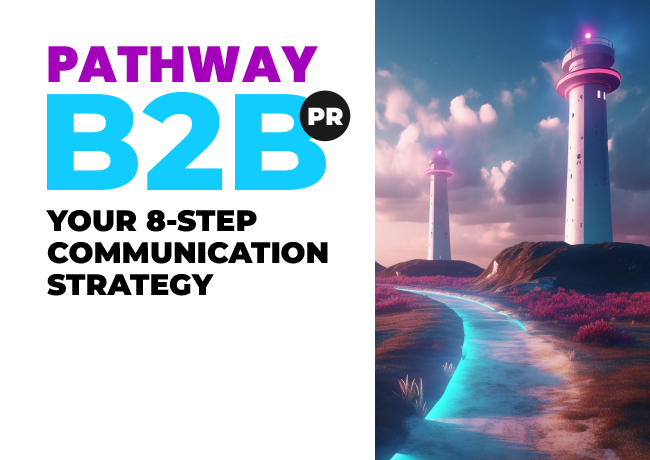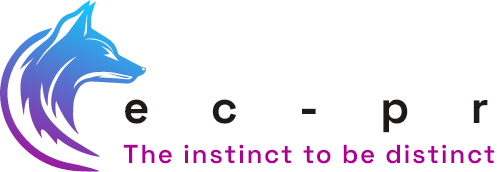
5 things to consider before outsourcing your CMO function
As your business grows and scales, your business functions begin to mature and what may previously have been done by a sales & marketing expert may evolve into a fully-fledged sales force as well as a dedicated marketing function.
However, the trajectory of this development may not be straightforward, and scale-ups often seem to be reluctant to appoint a Marketing Director or indeed a CMO due to cost or focus on other business functions, such as product development or engineering.
When the need for a strategic marketing resource does become obvious – and trust me, it does at some point! – the question many businesses face is whether to outsource the CMO function or hire someone in-house. The decision is far from straightforward and depends on several crucial factors. In this blog post, we will delve into five key considerations to help you make an informed choice.
1 Where will the CMO start?
Before you embark on the journey of outsourcing your CMO function, it’s essential to assess your current marketing strategy. Does your business have a well-defined marketing strategy in place? If not, the newly appointed ‘outsourced CMO’ will need to develop one from scratch. This includes crafting a strategic plan for execution, which they will oversee.
On the other hand, if you already have a marketing strategy in place, this could be an opportune time to evaluate and refresh it. An experienced outsourced CMO can bring a fresh perspective, identify gaps, and introduce innovative approaches to elevate your marketing efforts. Before making any decisions, ensure that you are clear about the starting point and the ‘brief’ the incoming CMO will receive.
2 Do we appoint a senior freelancer or someone from an agency?
Another important decision is whether to hire a freelancer or someone from a marketing / communications agency. Each option has its advantages and disadvantages.
A freelancer can offer undivided attention to your business, potentially working full-time on your marketing needs and spending most of the time with the team in house. They can provide deep expertise and personalised attention. However, if they happen to be the only person in marketing, they will soon need to look for assistance and bring in additional support / specific expert knowledge when implementing marketing plans and campaigns.
On the other hand, an expert from an agency, perhaps an agency partner that your company is already working with, may have other commitments but offers the advantage of a broader resource pool. While they might have other clients, they can draw upon the agency’s team for support, ensuring continuity and flexibility. This can be particularly beneficial for handling large-scale campaigns or sudden spikes in activity.
Consider your business’s specific needs and objectives before deciding which option works better for you.
3 Who will they report to?
Outsourcing the CMO doesn’t mean you needn’t ‘worry’ about marketing anymore, quite the opposite. The person in question will lead on and orchestrate your marketing efforts but, by investing in the marketing function that same function will mature and become more strategic, generating the need for continuous collaboration between the CMO and your senior team. The CMO will need to work closely with them to discuss ideas and ensure strategic alignment. As a senior resource, they are also likely to challenge and suggest new approaches designed to take your organisation forward.
The CEO and senior management must be prepared to allocate time to this collaborative effort, including a thorough onboarding process, in order to set the outsourced CMO up for success.
4 How will we measure success and award good performance?
Accountability and performance measurement are key to any successful outsourcing endeavour. Before bringing an outsourced CMO on board, define clear Key Performance Indicators (KPIs) and expectations for their role. What specific outcomes are you looking to achieve, and how will success be measured?
While outsourced CMOs may not be eligible for the same incentives as employees, you should still consider appropriate recognition and rewards for exceptional performance. A clearly defined incentive can motivate the CMO to go the extra mile in driving your marketing strategies forward.
5 Is this a good long-term strategy for the business?
Lastly, consider the long-term implications of outsourcing your CMO function. Ideally, a Marketing Director or CMO should have a seat at the Board table, playing a strategic role in shaping the company’s future. Businesses looking to thrive should strive to appoint an in-house CMO who becomes a key member of the executive team at some point in their growth trajectory.
However, there are situations where outsourcing this function to a trusted partner makes sense, especially in the short-term, interim, or mid-term. It can provide flexibility, expertise, and cost-efficiency. The key is to align your outsourcing strategy with your business goals and the unique challenges you face.
At EC-PR, we understand the complexities of senior decision making, and we have a team of seasoned professionals ready to provide senior counsel.
We’re here to elevate your B2B tech brand to new heights by harnessing our instinct to make you distinct we make your voice howl louder.
Our insights

Your 8-Step Communication Strategy Guide
A comprehensive guide to delivering your business goals using intelligent and relevant messaging.

